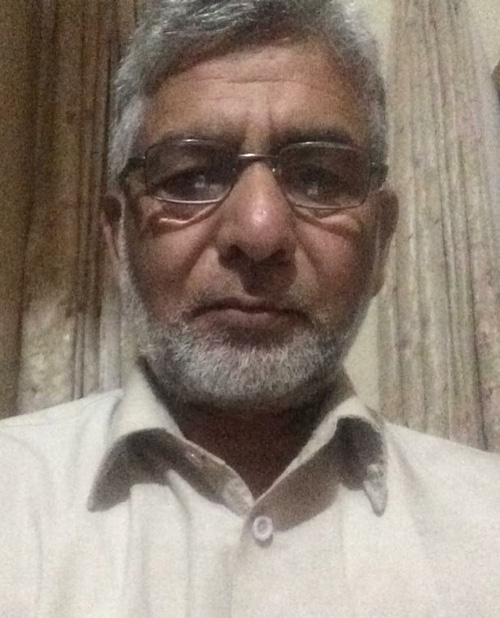Srinagar
In occupied Kashmir, the daughter of illegally detained All Parties Hurriyat Conference leader, Altaf Ahmad Shah, has said that her father is being denied proper medical care in New Delhi’s Tihar jail.
India’s notorious National Investigation Agency (NIA) had arrested Altaf Ahmad Shah and six other Hurriyat leaders in July 2017 in a false case registered against them. He has been lodged in Delhi’s Tihar jail since August 2017. The jail was recently in the news as it is overcrowded, making it a vulnerable space during the coronavirus pandemic.
Altaf Ahmad Shah’s daughter, Ruwa Shah, a media student, in a letter published in New Delhi-based The Caravan magazine maintained that her father has been unwell in jail and is not receiving the medical attention he requires. Her letter is reproduced below.
Every week, my family and I wait for a five-minute-long phone call with my 63-year-old father, Altaf Ahmad Shah, who is a prisoner in Tihar Jail in New Delhi. That is the only opportunity for my mother to hear his voice and renew her hope of seeing him a free man.
She draws sustenance from that short conversation with my father and waits for the next call. He always comforts her during the phone calls and reassures her that this too shall pass. My mother conveys his messages to me and my siblings. We repeat and discuss every word he spoke, seeking meaning and hope.
My father is a political activist, and has been one since he was in college. He was detained under the Unlawful Activities (Prevention) Act in July 2017 after incendiary media trials that led the NIA to imprison many Kashmiri politicians. No court has convicted him of any crime. He has been an undertrial prisoner since then. We have prepared ourselves for a long legal battle but that is a different matter.
The weekly phone call with my father has assumed a sense of urgency also because he is diabetic and suffers from hypertension. He needs insulin two times a day. Often, his blood-sugar level is not in control – it needs to be checked by endocrinologists at least one a month. He had developed a cyst on his foot last year, which was also not checked properly by a specialist.
On 25 April, I called my mother to check if she had spoken to him. She broke down in the middle of our conversation. “Your Abu was hospitalised. He has not been well,” she told me. My father has apparently had digestion issues that could not be treated for weeks after the internal doctors at the jail checked him. All he could inform my mother was that he had constipation for many days after which he was taken to a hospital – we do not know which hospital. We do not have complete information on what happened because the phone calls are very short and one can hardly hear anything because the network is bad.
My mother had not shared the news with anyone in the family because she did not want them to slip into despair. She has been at the forefront of our battle for survival and would protect us from any bad news even when my father was home.
An agonising week passed till the next phone call with my father. Ammi, my mother, put him on speakerphone so that I could hear him through another phone. I heard his voice for about sixty seconds. It seemed to be the fastest minute of our lives and it had passed before I recollected myself after hearing his voice for the first time in months.
He told us that the medicine he was being provided inside the jail had not worked. Doctors in the prison could not diagnose the problem without running certain medical tests.
The jail doctors – junior resident doctors – told him they could not help him more. They said he needs to be checked by a neurologist as it seemed to be a neurological disorder to them. The jail authorities did not take my father to the hospital.—KMS










